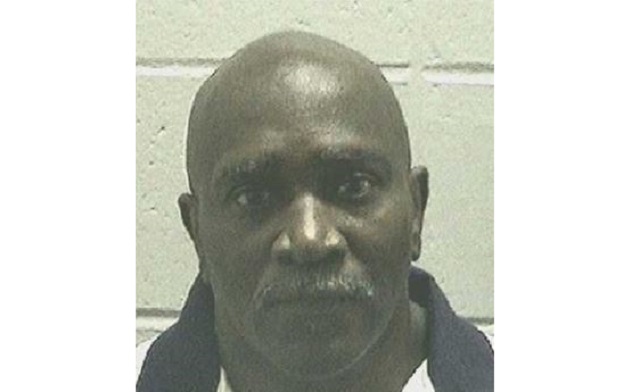 JACKSON, Ga. (AP) — The U.S. Supreme Court granted a temporary stay of execution for a Georgia inmate whose attorneys argue that the 59-year-old black man’s death sentence was tainted by a juror’s racial bias.
JACKSON, Ga. (AP) — The U.S. Supreme Court granted a temporary stay of execution for a Georgia inmate whose attorneys argue that the 59-year-old black man’s death sentence was tainted by a juror’s racial bias.
Keith Leroy Tharpe, known as “Bo,” was set to be put to death at 7 p.m. EDT Tuesday at the state prison by injection of the barbiturate pentobarbital. But the hour came and went as the justices considered his case. Just before 11 p.m. EDT, the court announced the temporary stay.
“I’m glad they’re willing to take the time to consider these serious issues in Mr. Tharpe’s case,” Tharpe’s attorney Brian Kammer said.
The justices will now decide whether to hear Tharpe’s case, but it’s not immediately clear when that decision will be made.
Tharpe was convicted of murder and two counts of kidnapping in the September 1990 slaying of Jaquelyn Freeman.
Tharpe’s wife left him on Aug. 28, 1990, taking their four daughters to live with her mother. Tharpe ignored an order not to contact his wife and during an argument over the phone on Sept. 24, 1990, he said that if she wanted to “play dirty,” he would show her what dirty was, a Georgia Supreme Court summary of the case said.
Freeman was traveling to work with Tharpe’s estranged wife when Tharpe blocked their vehicle with a borrowed truck, ordered them out and fatally shot Freeman.
About three months after the killing, Tharpe was tried, convicted and sentenced to death.
Years after Tharpe’s trial, his legal team interviewed a white juror in the case and he freely used the N-word, according to filings by Tharpe’s lawyers. Juror Barney Gattie, who has since died, also said Freeman was from a family of “good black folks,” but Tharpe wasn’t in that category and should be executed for his crime, according to an affidavit.
“After studying the Bible, I have wondered if black people even have souls,” Gattie said.
Gattie later said he had been drinking when he talked to Tharpe’s legal team and didn’t understand what his statement would be used for. He also said his comments had been “taken all out of proportion” and “misconstrued.” He testified that he voted for the death penalty because of the facts of the case, not because of Tharpe’s race.
The state of Georgia said the juror racial bias claim was barred by evidence rules and there is insufficient evidence to show that juror bias affected the trial’s outcome.
The Georgia Supreme Court on Tuesday refused to stop the execution.
The U.S. Supreme Court issued the temporary stay based on a separate motion that Tharpe’s attorneys had filed in federal court in June seeking to reopen his case based on the allegations of juror racial bias. A federal judge and the 11th U.S. Circuit Court of Appeals denied that motion.
In a clemency application, Tharpe’s lawyers described a tough childhood and an extensive history of substance abuse they said included getting black-out drunk by age 10 and a debilitating crack cocaine habit.
They said Tharpe feels deep remorse over Freeman’s killing and has kicked his addictions during his time in prison, devoted his life to God and sought to help improve the lives of others.
Tharpe would have been the second inmate executed this year by the state, and the 19th nationwide. Georgia executed nine people last year.
This article was written by Kate Brumback of the AP.